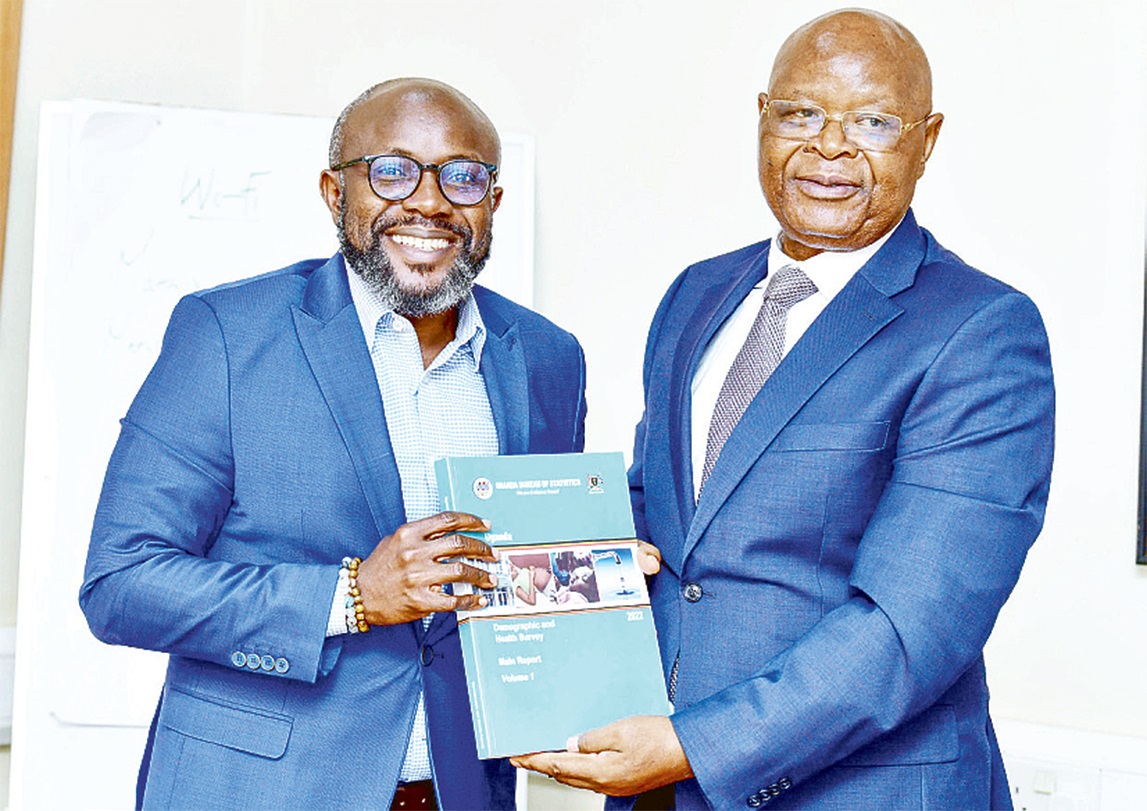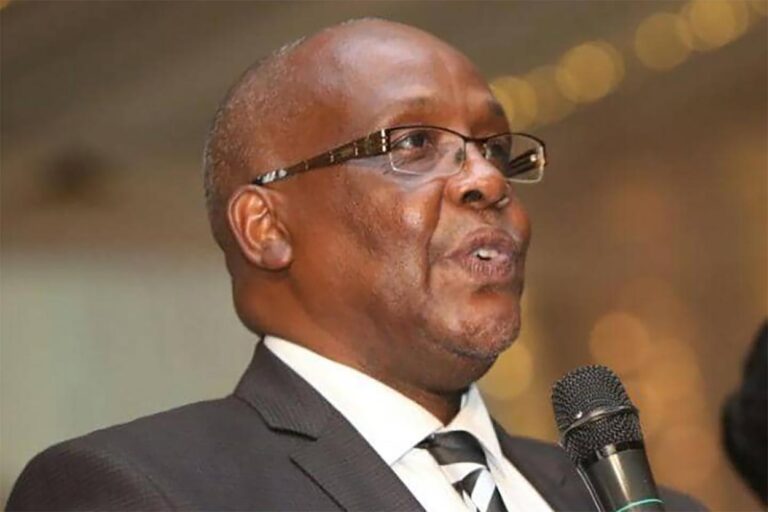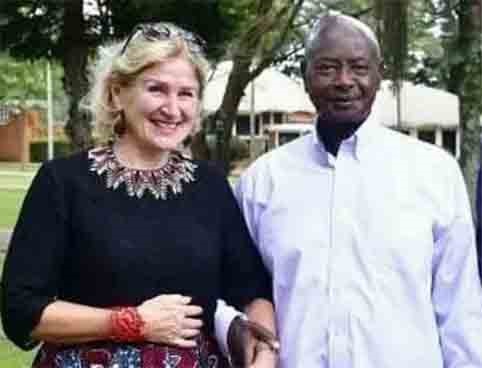
Dr Mukiza (R) hands over a report to Vision Group’s Wanyama (left) in Kampala last week
HABARI DAILY I Kampala, Uganda I The Uganda National Bureau of Statistics (UBOS) has agreed to partner with Vision Group to use its various media platforms to popularise its reports and make them understandable and usable by the members of the public.
UBOS, which is the official source for statistical information in Uganda, does regular surveys like the Uganda National Household Survey (UNHS) and the National Population and Housing Census (NPHC), as well as annual publications like the Statistical Abstract.
Dr Chris Mukiza, the UBOS Executive Director said that some of their reports, among which is the National Population and Housing Census, have been looked at as just figures.
“Since we are responsible for developing and maintaining the national statistical system, we have seen it feat to work with Vision Group, in popularising the data that we gather, and encourage the citizens and policy makers to put it to good use,” he said during a recent visit.
He under scored the need for evidence-based planning, resource allocation, and monitoring development progress, to what is happening in the Teso region, where poverty rates have reportedly gone up in the recent past.
“Well researched data is something that can be used to help such people put their skills to use and improve on their standard of living,” he said, adding that although Uganda’s absolute poverty rate is reducing, currently standing at 16.1%, down from 20.3% in 2020, there are some regions that have experienced a spike in absolute poverty, such as Teso and Karamoja.”
Mukiza said that although one of those inherent contributions to a rise in poverty in Teso is inequality, regional disparities also have to be put consideration.
“The problem with most local reporters is that they do not put the national statistical resources to use, and depend on Bretton Woods institutions such as the International Monetary Fund (IMF) and the World Bank, as well as Bloomberg for their data, which data cannot be aligned to our local situation,” he said.
He however pointed out that data that is used by IMF and World Bank to analyse international business trends comes from National Statistical Offices data across the world.
Didacus Okoth, the UBOS Principal Public Relations Officer, said that the critical issue for them is to ensure that they disseminate data beyond their shelves.
“Our data must be seen in the public domain. That’s why we need partners in the media fraternity to generate interest from the users, if we are to communicate accurate, official, statistical information,” he said.
Officials commended UBOS for the central role in developing Uganda through data collection and analysis.
“This engagement between our two organisations is happening at a time when we have just commenced the journey to an ambitious government target of driving the economy to $500 billion in the next 10 to 15 years. And I know that UBOS is at the center of this journey.”
Policymakers and many other stakeholders rarely read the big volumes produced in annual and quarterly reports.
The UBOS website provides access to data from various sources. Visitors to their portal can explore the data through their online portals and download specific statistical datasets and publications.




